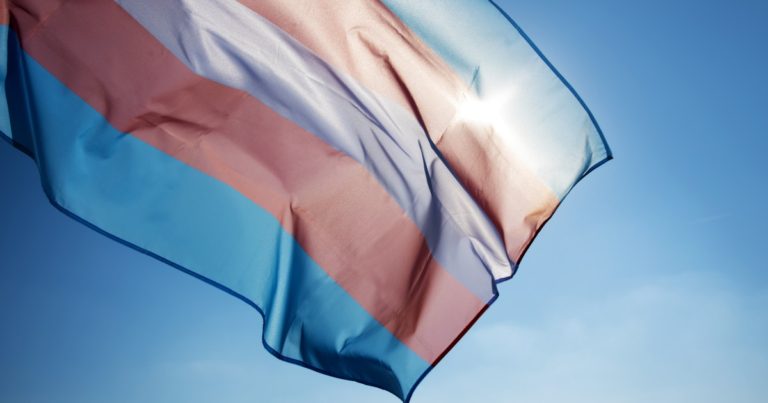

Transgender women and girls would effectively be banned from playing on secondary school and college female sports teams under a bill approved by both the House and Senate. LGBTQ advocates and allies are calling on Gov. Ron DeSantis to veto the proposal.
The transgender sports ban was originally passed in the House but stalled in the Senate. It was resuscitated late Wednesday through an amendment on an unrelated charter school bill and approved by both chambers. The language would determine a student’s sex based on their original birth certificate. If the birth certificate said they were male, and then they later changed that certificate to female, they couldn’t use the amended document to play on female teams.
“We don’t need this. We don’t need to destroy the lives of those children and their futures. If they want to play athletics, let them play,” Sen. Victor Torres (D-Kissimmee) says.
Torres has a transgender granddaughter and became emotional when debating on the Senate floor. But Republicans ignored his plea to vote the bill down.
“To think about my daughters competing against biological males rubs me the wrong way. I think it’s just wrong,” Sen. Keith Perry (R-Gainesville) says.
Perry, along with other Republicans, repeatedly referred to transgender women and girls as biological males. Sen. Kelli Stargel (R-Lakeland) rebuked the idea that the amendment is anti-transgender.
“Now you can sit here and say that there’s no difference between men and women, and if that’s not the case, then why do we have the bills that we have that protect women when it comes to assaults and rape and all those types of things—we know that men are stronger than women,” Stargel says.
Janet Silverstein, a pediatric endocrinologist who works at UF Health’s Youth Gender Program, provides services to transgender and gender-nonconforming youth and their families. She says when transgender women go through hormone therapy, they lose muscle mass and strength.
“And really, when it is all said and done, and they’ve started estrogen after a year or so, their muscle strength, their muscle mass is no different than that of a natal female,” Silverstein says.
The Olympics, National Collegiate Athletic Association (NCAA), and Florida High School Athletic Association have policies allowing transgender women and girls to play on female teams. Since 2013, 11 transgender high school students in Florida have been approved to play on a team that aligns with their gender identity. American Civil Liberties Union of Florida’s Kara Gross says the bill violates the rights of transgender people.
“To ban transgender girls from playing on a team with other girls is discrimination based on transgender status and sex in violation of the United States Constitution and Title 9 of the Civil Rights Act,” Gross says.
Stargel says she’s been taking heat for the things she’s said while supporting the proposal and carrying the Senate bill.
“I got stammered in my words, and I said, ‘LGBT-gay’ and that I said it was their choice, and people don’t take on these issues because if you say just the wrong thing the wrong way, you’re a witch. You’re a monster. You’re a bigot,” Stargel says.
“And she is. Right? What you are doing is transphobic,” Florida Coalition for Transgender Liberation’s Lakey Love says.
“And you silenced people who risked their lives in a COVID pandemic to come to the cesspool of COVID liability in the Florida Senate at the Donald L. Tucker Civic Center, and you silenced them and then went behind closed doors and did this. So yes, we are angry, yes, we know you’re a bigot, yes, we know you’re a transphobe, yes you are discriminating,” Love says.
Florida State University student Ash Soto is transgender and has been speaking out against the ban throughout the legislative session. They say the proposal is harmful and is already making an impact on them.
“It doesn’t leave your head. It’s a bad memory that keeps on repeating over and over again,” Soto says.
In early April, the NCAA issued a statement saying it would only hold championships in states that “can commit to providing an environment that is safe, healthy and free of discrimination.” Last year Idaho became the first state to ban transgender athletes from playing on women’s sports teams. More than two dozen other states, including Florida, have introduced similar language. It comes after President Joe Biden signed an executive order back in January banning discrimination based on gender identity and sexual orientation.